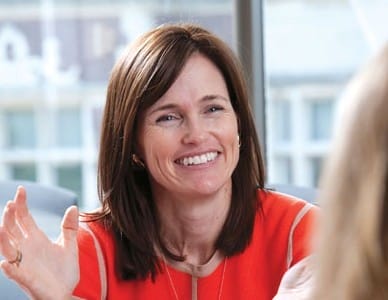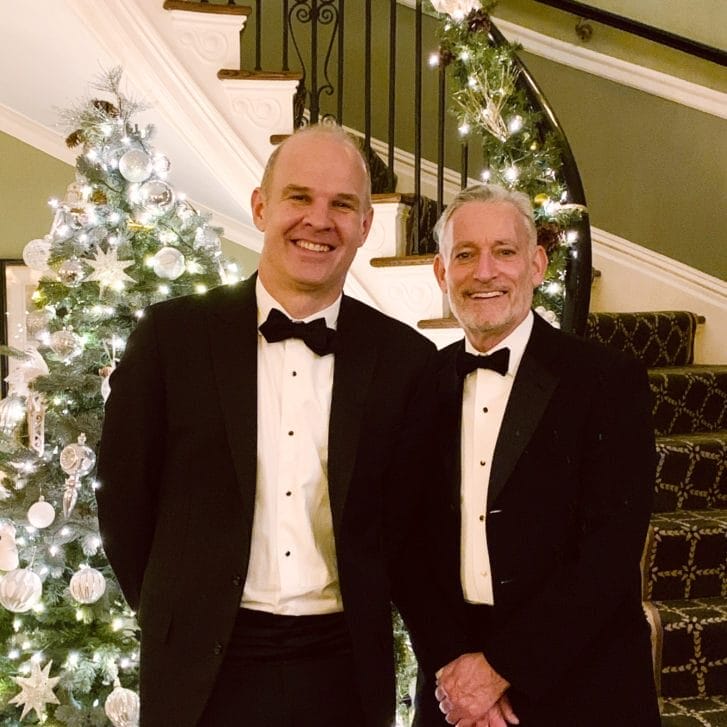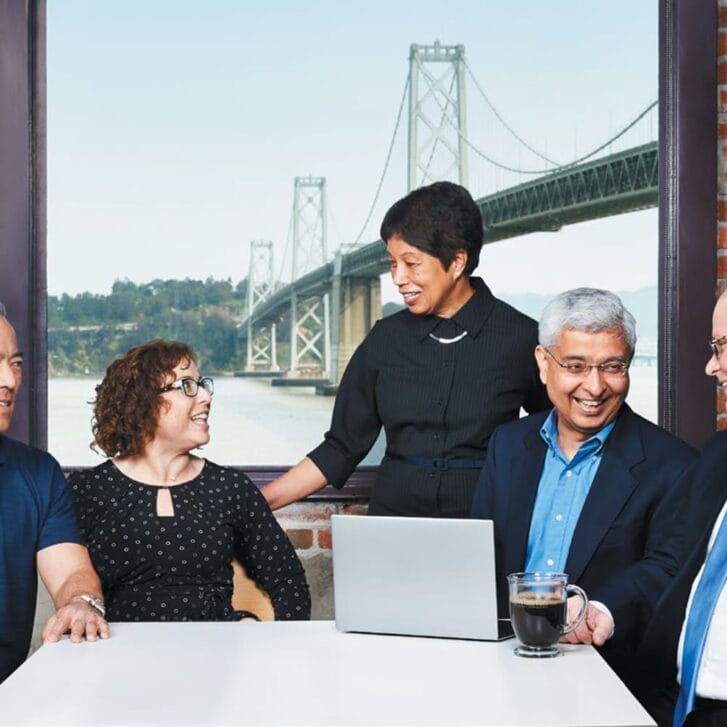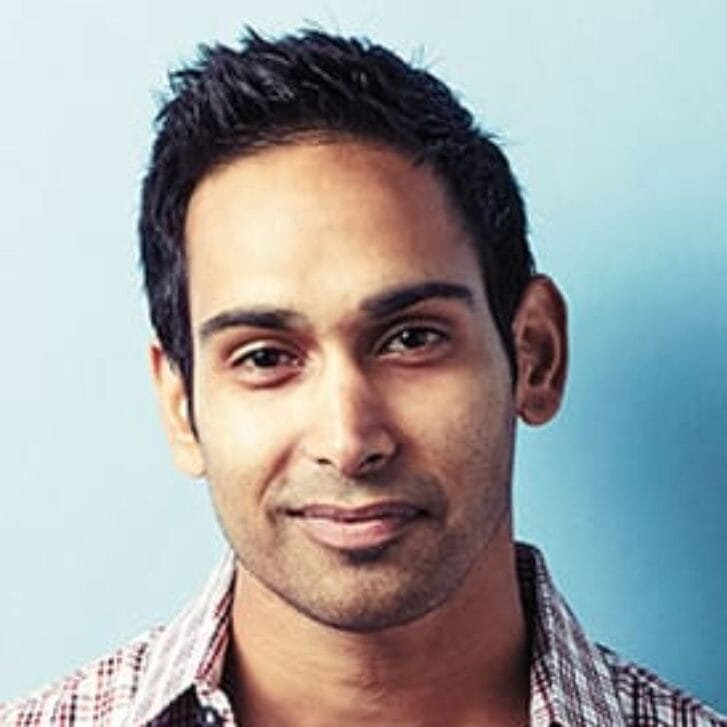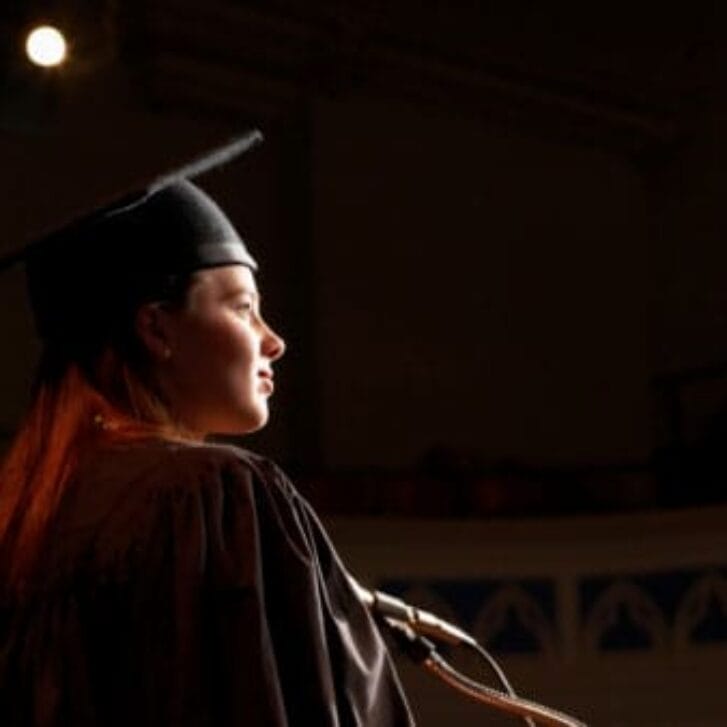Wharton Lifelong Learning emerged from the School’s Innovation Group, but it has since forged a powerful and organic partnership with Alumni Relations. It just so happens that while this was happening, a new executive director for Alumni Relations came on board. Lizann Rode brings a diverse background, energy and drive to her brandnew role on the Wharton Alumni Relations team to lead it into a new paradigm in the way it serves the community. We sat down with her, along with Laura Zarrow, GED’95, senior project director for Lifelong Learning, to discuss her new role, the partnership with Lifelong Learning and all that this means for the global alumni network.
WHARTON MAGAZINE: Lizann, what do you see as your purpose in your new position?
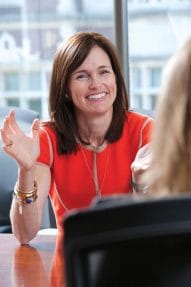
Lizann Rode. Photo credit: Phil Flynn.
LIZANN RODE: My primary purpose is to support and enhance the engagement of our 91,000 alumni all over the world. I want them to realize that we are a lifelong resource for them, as they are for each other. By helping them to cultivate their relationships with other alumni and the School, the already robust Wharton network will deepen and grow in impact on both the lives of individuals, as well as Wharton’s impact on the world at large.
WM: How has your background prepared you?
RODE: I was part of the Wharton community from 1997 to 1999 when my husband was in the MBA program. I also grew up outside of Philadelphia, so institutional pride in Wharton is very close to home, as is deep respect for the brand. Before coming back to Wharton, I was part of an external affairs team at another Philadelphia educational institution [Springside Chestnut Hill Academy] with a longstanding tradition of educational excellence and similar deep alumni connections. Before that, I represented physicians and health care institutions in Philadelphia [as an attorney and partner at O’Brien and Ryan] when they were sued for medical negligence. Again, I was interfacing with and representing a well-educated population with a high level of commitment and interest in outcomes.
WM: How does your hiring demonstrate the School’s commitment to a new approach to Alumni Relations?
RODE: While fundraising is critically important to any school’s ongoing success and effectiveness, alumni engagement is an equally important part of our mission and my primary focus. I think my position reflects a real innovation within our External Affairs division. While there is, of course, an important and robust commitment to fundraising to advance Wharton’s goals, I am here to serve the alumni in direct, tangible ways by bringing them meaningful programs and providing a forum for them to reconnect with each other, professors and the School.
WM: Wharton also has a new commitment to Lifelong Learning along with this approach to Alumni Relations. Laura, how are they related?
LAURA ZARROW: They are integral to one another. While Lifelong Learning emerged as an extension of our educational responsibility to our students, it is also the most significant gift we have ever given our alumni. It gives alumni the ongoing opportunity to acquire information, develop skills and cultivate professional thought partners. It promises to advance each of our alumni individually, which can only help to advance them collectively. And within that process, it gives alumni a compelling reason to continually engage with the School, enhancing the scope and effectiveness of the Wharton network as a whole.
WM: What unique events, programming and services will result from this partnership?
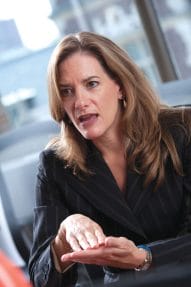
Laura Zarrow, GED’95; photo credit: Phil Flynn.
RODE: In short, you will see Lifelong Learning opportunities at almost all of our alumni events and will find networking opportunities throughout our Lifelong Learning offerings. More specifically, though, we are developing programing that is on campus and regional, in-person and online. It aims to provide content on timely and timeless business topics.
ZARROW: This includes new types of programming at our reunions and our Knowledge for Action Lifelong Learning Tour—our biggest pilot for this year, bringing Wharton faculty to 20 cities in 24 months. It gives alumni a chance to choose what they want to learn and feel like they are back in the classroom without having to travel back to campus. Alumni in various regions will also have a great way to connect with others who are interested in the same topics at this particular moment in their careers. Other pilots include the development and delivery of online content and a peer-to-peer matching system (P2PX), scheduled for launch this winter, which will enable alumni help-givers and help-seekers to be matched. These connections can provide answers to short-term questions or be the starting point for longer-term mentoring relationships.
WM: Wharton launched a new curriculum this fall for MBA students. Meanwhile, it is rolling out the aforementioned resources. What’s the connection?
RODE: Lifelong Learning emerged from the same process that resulted in the curriculum revisions. In considering the business landscape that new graduates face, the faculty wanted to ensure that alumni are also equipped to seize the opportunities that come with a rapidly changing world and multiple career stages.
WM: A question for both of you: What will need to be accomplished in the next year or two for you to consider it a success?
RODE: We want the alumni to feel fueled and supported and find continued success and satisfaction as they progress through their professional and personal lives. For that to be fully realized, we need to have a deep understanding of who they are, how they learn and what they need. That kind of understanding comes from authentic relationships and dialogue.
ZARROW: This really boils down to several questions: How many of our alumni are we touching? How do they rate the quality of what we provide? And what has become possible for them as a result of their Lifelong Learning experiences? As we progress, we will regularly ask ourselves these questions. We will also continue to reach out to alumni so that we can keep learning what they need to learn and how they need to do it.




















